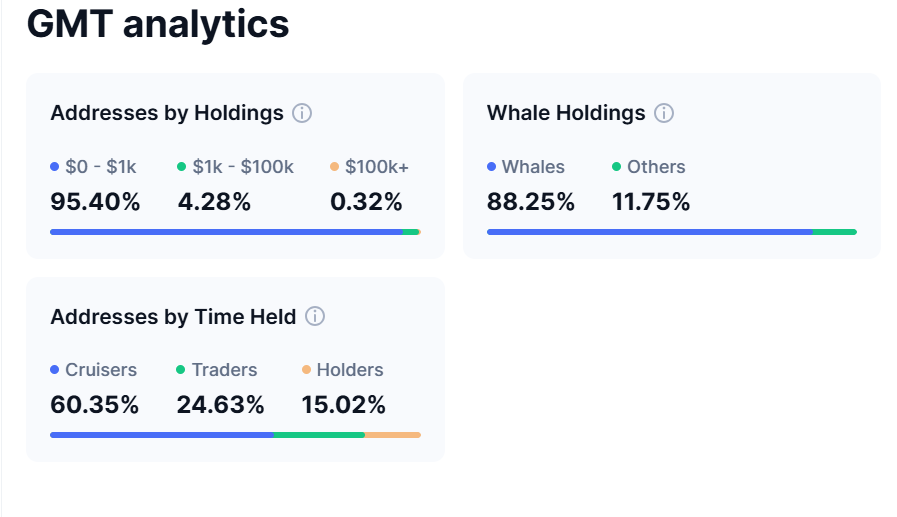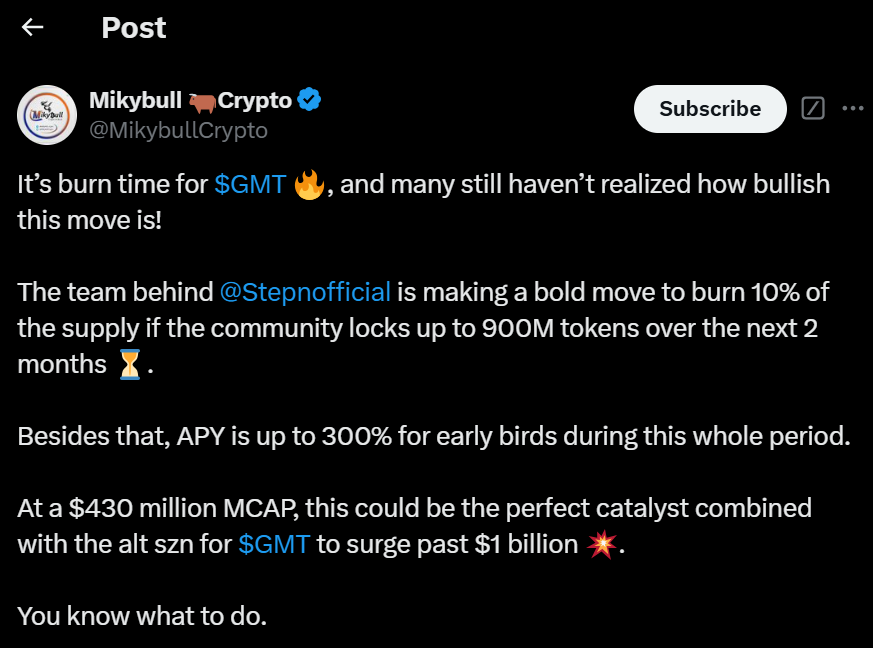NAIROBI (CoinChapter.com) — Amid a declining crypto market, the GMT token has defied the trend, rallying over 30% in daily trading. The token is priced at $0.1772, placing it among the few gainers in a market that saw a 3.09% drop in global crypto market cap to $3.32 trillion.
Aggressive Buyback and Burn Initiative
StepN recently announced a buyback program involving 600 million GMT tokens. The initiative aims to bolster demand by reducing the token’s circulating supply.
Additionally, the team proposed burning 10% of the supply—a milestone contingent on the community locking 900 million GMT tokens within two months. This move would effectively decrease the token’s total supply, fueling scarcity-driven demand.
The buyback and burn strategy aligns with broader tokenomics principles aimed at rewarding long-term holders. Data shows that whales currently dominate GMT’s holdings, accounting for 88.25% of the total supply.

Retail investors, who collectively hold less than 5%, are also showing increased interest as smaller holders participate in Stepn’s staking program.
High-Yield Staking and Whale Moves Push GMT Toward $1 Billion
Stepn’s high-yield staking program has emerged as a key driver of GMT’s rally. Offering up to 300% annual percentage yield (APY) for early participants, the program has attracted significant interest from traders and short-term holders, who make up nearly 40% of GMT’s total holders.

GMT’s market capitalization has surged to $430 million, with a 35.63% weekly gain. Analyst Mikybull Crypto projected that the token could reach $1 billion if the burn program and staking incentives maintain momentum.
On the technical front, GMT recently broke a long-term descending trendline, signaling a potential trend reversal. Its relative strength index (RSI) near 51 reflects balanced momentum and room for further growth.
GMT’s price surge reflects a strategic approach by StepN to enhance the token’s value through supply reductions and staking rewards. While the broader crypto market remains under pressure, GMT has emerged as an outlier, showcasing the impact of well-executed tokenomics. However, the token’s reliance on whale activity and concentrated holdings could introduce volatility.